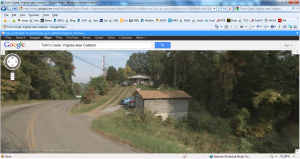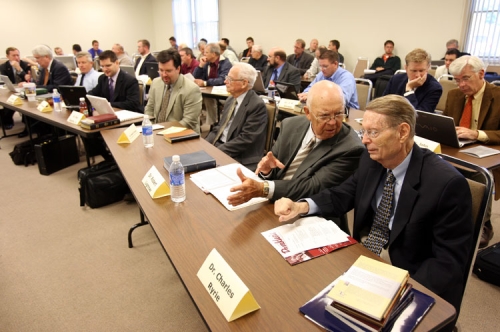I have not posted in my blog for quite sometime. Transition to a new ministry has sidelined me quite a bit in this matter. I have been traveling a lot internationally for my ministry at Friends of Israel. In the last year, I have been to Poland, Germany, New Zealand, Australia, Israel, and Argentina. I hope to bring some regularity to my blog (once a week?) in the days ahead.
The reason for my blog today is not pleasant. I have lost another friend who was with me during my days at Baptist Bible Seminary. Dr. Bill Arp has gone to be with his Lord. The gain is heaven’s. The loss is ours and it is deep. Bill was one of my closest friends on the faculty. The wisdom flowing from his longevity at the school helped me much as I negotiated the ups and downs of academic life. When I flew up to Clarks Summit, PA in April 1994 to interview to teach at BBS, the first home I was in was Bill and Joanna’ s. I remember the lovely dinner and the lively conversation. But most of all the family warmth. I spent numerous times in Bill’s home over the 22 years I was at the seminary. His love of family was apparent. It was a pleasant place to be.
Bill was a quiet scholar who knew his area of expertise (Greek & NT) quite well. He also had some breadth as we discussed issues of theology and ministry. Above all, he was a praying friend who cared for me and my family deeply. He was an easy man to love. I will miss him greatly. His legacy continues. Please pray for Joanna and the family he leaves behind. We take great encouragement from the promise of resurrection given by Jesus: “because I live, you shall live also” (John 14:19).


